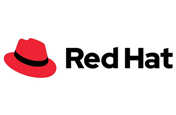Unable to find what you're searching for?
We're here to help you find itDO121 Introduction to Microsoft Azure Red Hat OpenShift (ARO) Course Overview
DO121 Introduction to Microsoft Azure Red Hat OpenShift (ARO) certification is a professional qualification that validates a candidate's knowledge and skills in deploying, managing, and scaling containerized applications using Azure's Red Hat OpenShift. Azure Red Hat OpenShift is an integrated, developer-focused service that combines OpenShift's automation and security features with Azure's cloud computing capabilities. Industries use this technology for smoother, faster, and secure application development and deployment processes. The certification equips professionals with thorough understanding of managing containers, orchestrating workflow, scaling infrastructure, and adding developer services to catalyze development and boost productivity in the IT environment.

Purchase This Course
| Day | Time |
|---|---|
|
to
|
to |
♱ Excluding VAT/GST
Classroom Training price is on request
You can request classroom training in any city on any date by Requesting More Information
♱ Excluding VAT/GST
Classroom Training price is on request
You can request classroom training in any city on any date by Requesting More Information

1-on-1 Training
Schedule personalized sessions based upon your availability.

Customized Training
Tailor your learning experience. Dive deeper in topics of greater interest to you.

4-Hour Sessions
Optimize learning with Koenig's 4-hour sessions, balancing knowledge retention and time constraints.

Free Demo Class
Join our training with confidence. Attend a free demo class to experience our expert trainers and get all your queries answered.

